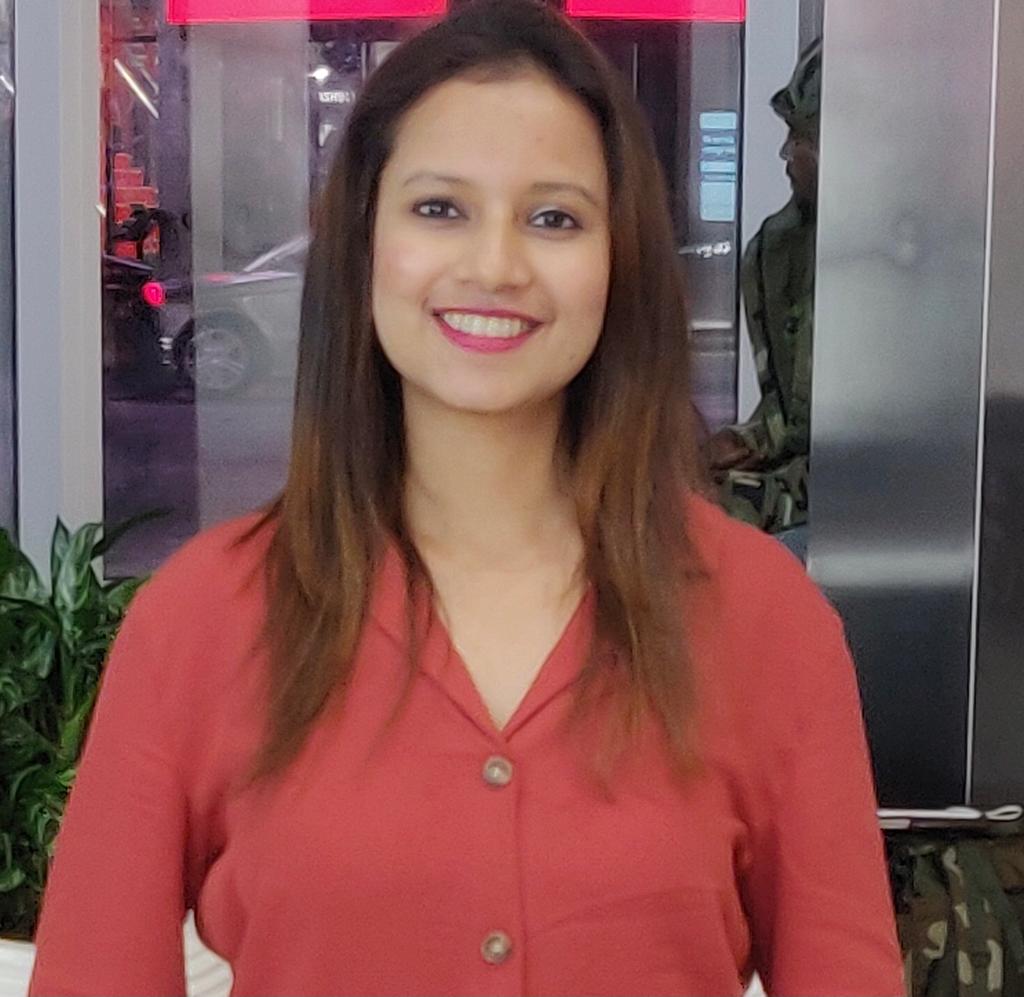WIN1201-23 Library Book Checkout System


My name is Tanvi. I am currently doing a Wireless Information Networking Post Graduation course from Fleming College. I have completed my bachelor’s degree and master’s degree in Computer Science Engineering.
I have certification in .Net and Java programming languages. along with this, I have done research work in Cloud computing on the basis of which I did the two research papers that are published in the UGC approved Journals; IJCSE and IJARCS.

My name is Mohit Sri Sai Vejendla and I am currently pursuing Post Graduation Course in Wireless Information Networking course at Fleming College.
I have completed my Bachelors of Technology in Electronics and Communication Engineering.
I have honed my skills in C/C++, Javascript, and Python programming languages.

My name is Sanjana Mandal and I am currently pursuing a post-graduation diploma in Wireless Information Networking.
I have completed my Btech in Electronics and an MBA degree holder from the USA.
I have over three years of experience in Banking and Financial Services, with expertise in Financial Analysis, Reconciliations, Audits, Compliance, Reporting, Escalation, and Client Servicing, and in-depth knowledge of tendering and contract, preparation of proposals, project planning Proficient in MS Office (Word, Excel, PowerPoint).

My name is Manpreet Kaur and I am currently pursuing a post-graduation diploma in Wireless Information Networking.
I have completed my bachelor of computer application.
I have gained some technical skills in Java script, PHP language, and c++.
Team Name:
FantasticFourTeam Members Names:
Tanvi Tanvi, Mohit Sri Sai Vejendla, Sanjana Mandal, Manpreet KaurProgram of Study:
Wireless Information NetworkingMentor Name:
Cathy SmitsProject Name:
Library Book Check Out SystemSponsor Name:
Neil D'souzaSponsor Organisation:
Fleming CollegeBrief Description Of Project:
The aim of the Self-Checkout System is to automate the process to check-out a book from any library to improve efficiency over traditional library check-out systems without having a librarian scan the books during the checkout.
Project Objective:
Goal :
The goal of this project is to automate the process of check-out a book from any library to improve efficiency over traditional
library check-out systems.
Objectives :
1.) To design and develop a website that will facilitate the creation of online accounts by users to ensure a quick checkout.
2.) To build a self-checkout system in the library that will use RFID scanners to scan the RFID tags on the books and then
allow the users to input their account information to efficiently check-out their books.
Success Criteria :
1.) Working website for users to set up and manage their online accounts to be used at the time of check-out.
2.) The user’s account should also display information like the current book the user has checked-out, check-out history and the return date.
3.) Working self-checkout kiosk which will scan the RFID tags on the books using an RFID reader system and then allow the
user to enter their account details to complete check-out.
4.) The system must also generate a receipt that will provide information about the return
date.
Project Innovation:
- We used Javascript in designing the Website because it is understandable by the hardware we used.
- We used an Arduino Microcontroller Board and an RFID module with a collection of jumper wires because their cost is less compared to other hardware equipment in the market.
- We used the protocols of C-language in developing the code with the help of Arduino-related Library Functions So that the Arduino Board will start reading the values supplied by the RFID module and communicating with the website we designed. We particularly used C-language because the Arduino development environment supports only C- Language data structures.
- We used Sticker RFID tags which have unique built-in identification numbers. We used those tags to stick them on the back of the book. These tags will be used for scanning them on RFID modules.
Challenges & Solutions:
- We initially used PHP for designing the website.
- But the hardware Equipment is not able to understand the scripting language of PHP.
- As a result, there is a lack of communication between hardware and website.
- We had to redesign the entire website with javascript which is entirely different from PHP.
- The RFID module we ordered initially was not able to scan the tags, we had to return and get a new replacement RFID module to scan the Tags.
- The Sign-in Options like Apple and Twitter are not working. Apple required us to pay 100 USD just to use its Sign In button. Twitter is taking Forever to respond to our request o use it for signing in to our website.
Project Results or Progress:
- We have developed the Prototype of the Library Self Checkout System with the help of the Arduino Microcontroller Board, RFID module, and the Website we designed as required by our sponsor.
- The users can create an account on the website we developed and they will be assigned a 10-digit unique ID. The users then can log in with their credentials on our website and they can start scanning the books.
- We are able to scan books on the RFID module and its details are popped up on the “Assign Page ” of the library website.
- We are able to assign a return date to the book after scanning and the status of its availability is updated on the “Available Books” Page of the Website.
- After the return date is assigned a receipt will be generated in the form of a PDF showing the details of the book, its checkout date, and return date.
- The user can also Return the book by scanning it back on the RFID Module and the status of its availability is updated again on the “Available Books” page of the website.
Lessons Learned:
- From doing this Project we have developed our technical skills more than what we had in the beginning.
- we have learned to use certain library functions that replace a long code, so the coding lines are reduced and the execution time is reduced to perform certain tasks.
- We have learned Team management like splitting the work appropriately among ourselves to finish certain tasks like developing the code, designing the template, etc. on time.
- We have improved our communication skills which can be helpful in the near future when we are employed in jobs related to our field.
- The technical skills we gained will help us to perform better in the jobs we would get enrolled into.
